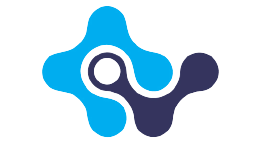
- 1GENERAL CONCEPT
- 2POST PRODUCT
- 3DESIGN PROCESS
- 4FINALIZE & PUBLISH
Professional ERP SOULTIONS FROM EXPERTS
Enterprise resource planning (ERP) is a type of software system that helps organizations automate and manage core business processes for optimal performance. ERP software coordinates the flow of data between a company’s business processes, providing a single source of truth and streamlining operations across the enterprise. It’s capable of linking a company’s financials, supply chain, operations, commerce, reporting, manufacturing, and human resources activities on one platform.
Modern ERP software systems
Historically, ERP systems were suites that worked separately and didn’t talk with other systems. Each system required expensive, complex, and customized code to meet unique business requirements which slowed—or even prevented—the adoption of new technology or process optimization.
Why is ERP important for business?
While there’s no all-up solution for every business process, ERP technology is getting better and better at bringing processes together. After your processes, systems, and data are connected, you’ll get the business intelligence, acceleration, and adaptability you need to start optimizing your operations.
Here are three ways an ERP system can improve your business:
- Drive optimal performance. With solutions that use AI, you’ll access insights that enhance your decision making and reveal ways to improve operational performance going forward.
- Accelerate operational impact. By connecting processes and data, you’ll bring more visibility and flexibility to employees, helping them take action quickly and deliver more value across the business.
Three signs that you need ERP software
If you’re reading this and struggling with your legacy system, you might be wondering if this is the right time to make a change. Here are some signs that you need new ERP software:
- The basics aren’t letting you grow: Perhaps you’ve been doing fine with basic tools, but if your current software is putting limits on your market expansion and ability to grow on a global scale, it may be time for a improved ERP system that is flexible enough to allow for growth.
- You’re dealing with disparate systems: As technology changes, you’re noticing that your disparate systems don’t work well together. You may notice that your new accounting software isn’t compatible with your old HR system, and you’re tired of wasting time and resources trying to stitch a solution together.
- You can’t meet customer expectations: If your staff and customers are mobile and your system isn’t accommodating them, it’s time to invest in one that meets everyone’s needs. Giving your staff the tools they need to succeed and investing in meeting your customers’ expectations can help you maintain your competitive edge.
TIP: If you or your staff are asking for a new system and there’s a resistance to an ERP change, schedule a demo so everyone can see what’s out there. When everyone feels like they’re included in the decision process, it’ll make implementation much easier.
Three ERP implementation challenges for businesses
Despite all the options out there, some companies are still hesitant about implementation of an ERP system. There could be many reasons why, but where there’s a challenge, there’s a solution.
Choosing the right ERP solution.
You don’t have to find the perfect software solution to fix everything. ERP should be able to take the best of the business processes you’re using now and bring them together under one system that allows everyone in your organization to view the same information. This is why choosing the right technology partner is important.
Affording the cost of an ERP system.
A solution doesn’t have to be an all-or-nothing implementation. Software solution modules can be purchased separately according to your business needs. This will help your team ease into the implementation piece of ERP, and it’ll save you from having to invest in a major software renovation without knowing whether the functions you’re adding will pay off.
Integrating new ERP software with existing software.
As we mentioned, any ERP solution you choose should work with what you’re using now but also include features that can help in your future growth. For instance, if the software you have mostly handles the financial, supply chain, and manufacturing sides of your business, you may want to look for a solution that brings in a strong business intelligence component.
Let's Talk About Your Business
Let's Schedule a Consultation
Call us at (904) 947-9773 or fill in the form below
